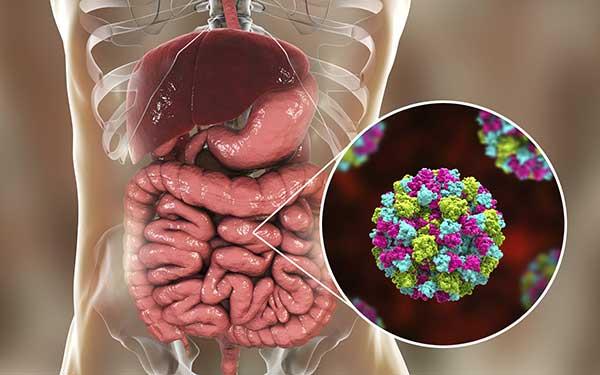Norovirus is a foodborne illness that’s common in America. It is highly contagious, and the Centers for Disease Control and Prevention (CDC) reports that the Norovirus infection is most prevalent during the winter months. The number of deaths caused every year by this infection is between 570 and 800. These deaths mostly occur with youngsters and seniors.
Causes of Norovirus Infection
You can get the Norovirus infection by consuming foods that are contaminated with it.
Food contamination occurs when someone who has the virus touches their feces or vomit and then the food without washing their hands first. You can get this virus through food sharing and through the sharing of spoons, forks, and knives.
See also: When Does a Pediatric Stomach Virus Become Serious?
The Norovirus can also be spread when someone with the illness sneezes. When this happens, contaminated droplets settle on everything in their path, infecting everything in that path with the virus. Touching the surfaces these droplets land on puts you at risk for the virus.
Symptoms of Norovirus Infection
The incubation period for the infection is one to four days. After that period, you may experience symptoms like severe diarrhea and vomiting, along with stomach pain. A slight fever, dizziness, head pain, and pain throughout the body are additional symptoms you could have. Dehydration can result from some of these symptoms.
Treatment of Norovirus Infection
Medicine to treat the infection does not exist. Treatment for dehydration can be given, though, and a prescription for nausea and headaches may be administered.
If you get the Norovirus, you must be patient and wait for it to pass. You should take in more fluids while you wait so you don’t get dehydrated. You should also get plenty of rest.
Prevention of Norovirus Infection
In an effort to prevent contracting the infection and to prevent it from spreading, you should wash your hands often. You should wipe down countertops and anything else you feel is contaminated with the virus using bleach.
You should also wash cloth items that are contaminated with infected vomit or feces with bleach, and you should dry them in the dryer. You should open doors holding a paper towel or tissue to avoid contact with contaminated door knobs and handles. Wash produce before consumption and don’t eat fish raw.
Outbreaks of the Norovirus infection usually occur in nursing homes, schools, and prisons. People in the military are also in a setting where outbreaks of the Norovirus are likely to occur. Norovirus outbreaks are also common on cruise ships and at catered parties.









